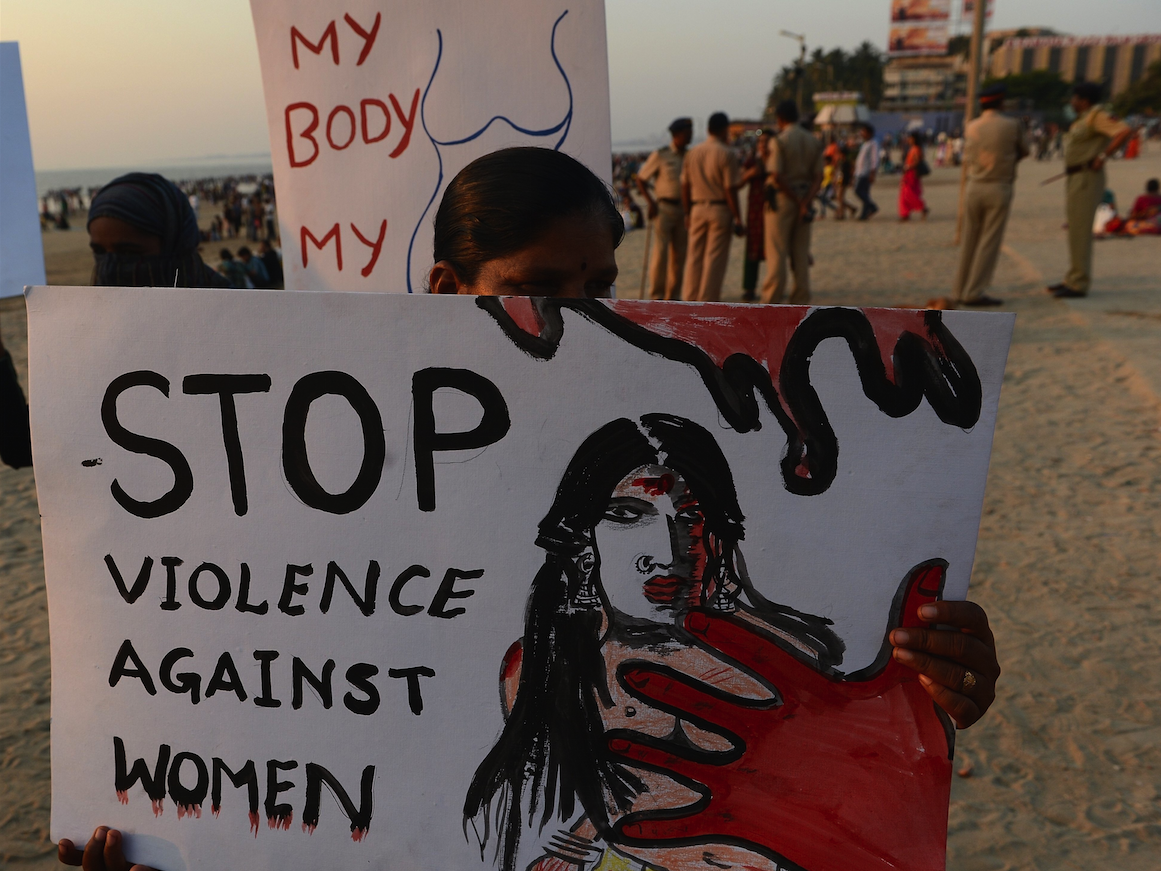
Sometimes when I’m in a group of women, I find myself silently ticking us off by sets of three: one, two, three; one, two, three. Statistically, I know, 1 in 3 of us will be raped, beaten, or otherwise abused in her lifetime. Such statistics can often ring hollow, but when I count off in my head, I’m thinking of real women; real lives; real suffering.
Women, like all people, have the right to live free from violence. But a staggering number of women and girls are disproportionately affected by violence and are even targeted because of their sex or gender. A woman’s situation in life—like her class, race, nationality, legal status, etc.—affects how vulnerable she may to violence, yet violence against women is a global epidemic: no country or community is immune.
Gender-based violence stems from a global system of gender oppression rooted in deep sexism and stems from the failure of governments and societies to recognize the human rights of women. Governments are responsible under international law to respect women’s rights by refraining from interfering with that right; protect women’s rights by preventing other parties from interfering with that right (including private individuals); and fulfill that right with laws, policies, and institutions that enable women to enjoy their rights—and yet across the globe women are abused, beaten, raped, mutilated, and killed with impunity.
Consider the case of Egypt, where over 99% of women have faced sexual harassment and 47% have faced some form of domestic violence, and yet despite promises by Egypt’s president to stamp out violence against women, attacks on Egyptian women continue unabated, and Egyptian authorities are cracking down on their critics, arresting women who peacefully protest.
And Egypt is in no way alone. This 16 Days of Activism Against Gender-Based Violence, we’re highlighting cases from Egypt, El Salvador, South Africa, the Maghreb Region, and Afghanistan.
I’m often asked how I can stay hopeful in the face of such astounding violations of the rights of women and girls, especially when such violence is rooted in a global culture of discrimination against women. But discrimination is not natural; it is learned. And what is learned can be unlearned. And laws that prevent women from enjoying their rights can be changed. And we can end violence against women and girls.
Today, November 25, is the International Day for the Elimination of Violence Against Women. It also launches our annual 16 Days of Activism Against Gender-Based Violence, 16 days where we join together around the globe to highlight our efforts to end gender-based violence. We do so because we know that violence against women is not inevitable; it can end. We can end it. Join us his 16 days to do just that.
What is learn't is naturally acquired.
What isn't natural is the dominating question you face.
The the though is, that nature built women to build man to build machines.
Also, women built man so as to war and collect harvested goods, i'e pillage murder and war.
Why must the arguments be approved of… not liberated enough lads/las.
Congratulations on the article!
Very good content and easy to understand!
Very good article, easy to understand!